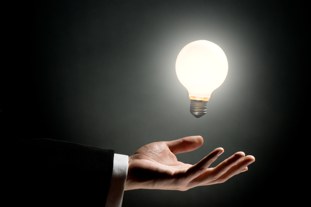How you answer this question can literally determine your life. The question, the Big Kahuna, is, “Do I trust the universe?”
By the way, we are defining the universe as everything, all that is.
 This crucial question deserves examination. Just know that ultimately you want a gut-check answer (yes or no) to whether or not you trust the universe.
This crucial question deserves examination. Just know that ultimately you want a gut-check answer (yes or no) to whether or not you trust the universe.
Also, this is an ongoing question until you know – or feel – the answer.
Then it is no longer a question that needs answering, although exploring its depths is very rewarding in itself. In effect, you will be living the answer.
YOUR PURPOSE
While you want to fulfill your part in the grand scheme, everything already exists in a timeless, eternal state.
There is being fully in the “now” moment, being unconditionally present. And yet, paradoxically, there is the all-important urge to become more, to actualize your potential.
This takes us to the subject at hand. To let the universe support you, you need a game plan. You need to find your purpose, a reason for being, a reason for becoming more…
To get with the cosmic program for now, to become more, you find your life purpose. How? By developing your gifts and skills that help yourself and the world.
If you don’t come to a definite purpose and plan, a “why,” then you are at risk of becoming what Napoleon Hill calls “a drifter.”
In other words, without a higher purpose you are subject to negative and irrelevant programming by others: family, friends, media, institutions, education, and the government.
As your purpose comes into focus, you can take charge by following it. As Wallace Wattles recommends, you begin to “think in a certain way.”
You recognize yourself as a creator, merging with the larger universe, with its limitless abundance and infinite potential.
When you regularly think and act on purpose, you do trust the universe. And that feels good.
LUCK?
We can learn some lessons from great companies. Jim Collins wrote in his book Great by Choice that the highest performing companies viewed “luck” differently from the average performers.
In this case, luck is defined as unpredictable outer circumstances that negatively or positively impact you.
The great performers use luck, but don’t squander their good fortune. If a windfall comes their way, if the weather helped their products sell, they don’t quickly spend all their extra earnings.
Like the ant in the famous Aesop fable, they prepare for inevitable downturns, periods of “bad luck.” Like the grasshopper in the fable, the average performers tend to quickly spend their gains.
When bad times strike, like the mortgage crisis, outstanding performers are better prepared. They use focus and discipline to overcome obstacles.
They are practical and aligned with their goals. They course-correct where needed. Average performers are more likely to panic and make poorer decisions.
We can learn from these great performing companies. We get can get a “return on our luck” by taking responsibility for our lives and our purpose.
How do we take advantage of luck? By doing what it takes to succeed, in a sensible and yet inspired way.
LEMONADE FROM LEMONS
So use your luck to help you trust the universe. Appreciating your good luck can generate more good opportunities.
Learn from misfortune, be flexible and creative, and make lemonade from the lemons.
For example, years ago we put a lot of effort into a website that did not succeed the way we had hoped. However, we learned a lot from that experience. And as it has turned out, some of the connections we made then are coming into play in wonderful ways now.
So here’s the paradox…
On the one hand, do go with your feelings and what inspires you. And realize you can’t know all the details or how it will happen.
At the same time, being focused and disciplined is essential for doing your part in trusting the universe.
Do what you can with what you have… and trust that more will be given to you at the right time in the right way.
FINAL THOUGHTS
To trust the universe is huge. To do so, find your purpose. Hold strong and course-adjust where needed. Continue living in learning mode.
Remember that we never really “arrive” – it’s still the journey that counts. Learning to trust the universe accelerates your growth.
Be smart, be conscientious. Do what you can with what you have and keep on imagining. Then more you trust the universe, the more it’ll support you.
In essence, we continue to grow by enriching ourselves and others. Then, not only can we trust the universe, the universe can trust us — because we are doing our part.

